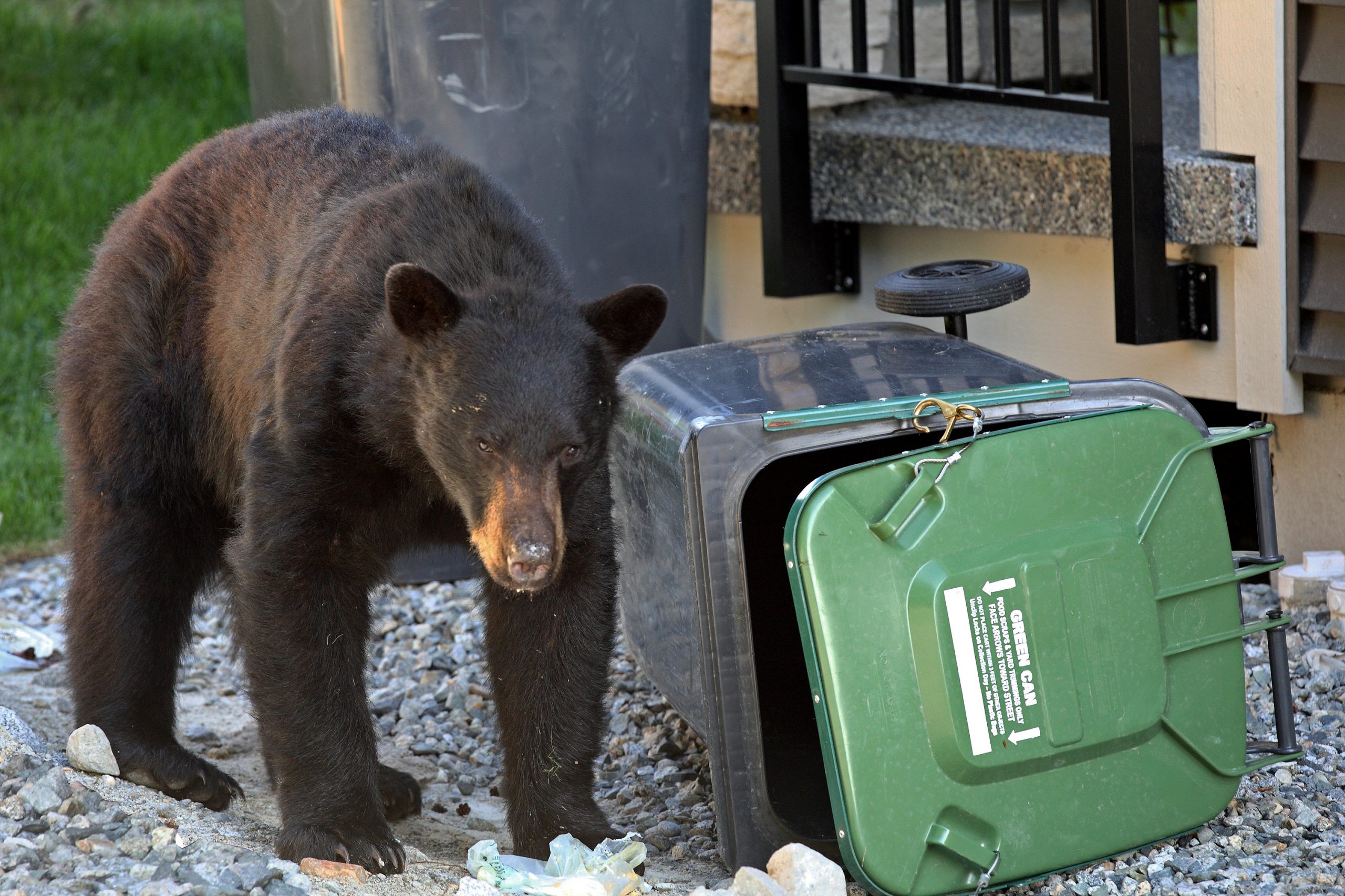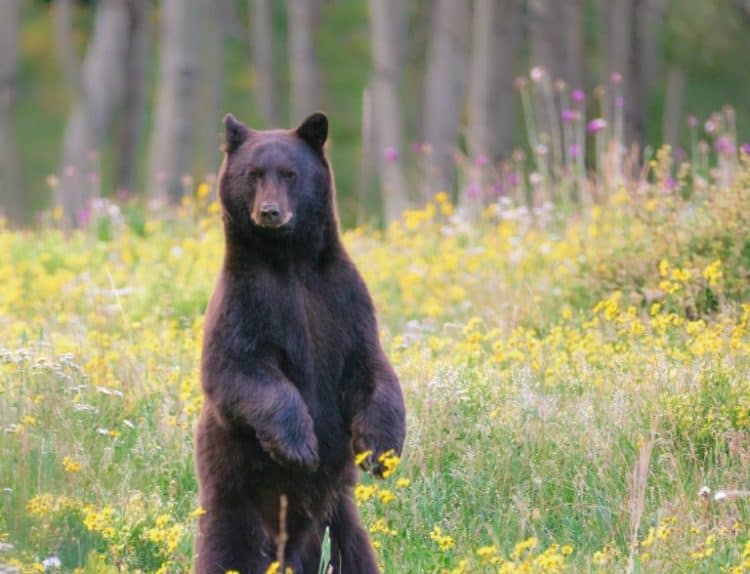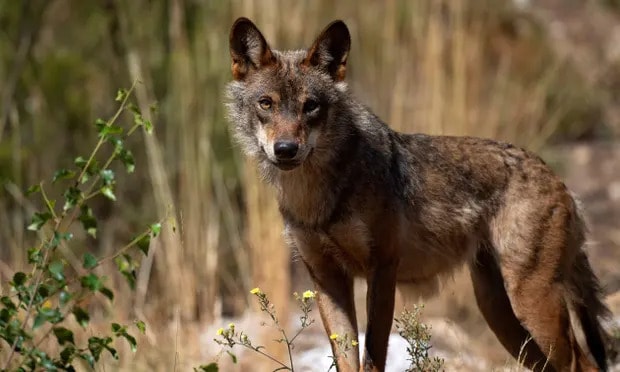One reason we are hearing about black-bear-human interactions more than ever before is the rapid human development encroaching into their established habitats. Interactions with wild animals will persist and likely increase as some species of wildlife continue to adapt and flourish in urban and suburban areas. However, fear of these animals is not the remedy, education is. There are simple and effective ways to avoid unwanted interactions with bears, and if you do come face to face with one, there are ways to keep yourself and the bear safe.
According to Kitty Block, president and CEO of the Humane Society of the United States, “Black bears are wild animals who should be taken seriously. But it is also important to understand that bears are naturally shy animals who avoid people. Human-bear conflicts are rare and can be minimized with a few simple and commonsense precautions, keeping both people and the animals safe.

Black bears have acute eyesight and hearing, with a sense of smell estimated to be seven times greater than a bloodhound’s (and 100 times greater than ours). They have a keen ability to detect pet food, garbage, barbecue grills, and bird feeders—and once they locate a food source, they remember where it is. Securing garbage bins, enclosing your compost pile, keeping barbecue grills clean and removing any other food attractants can go a long way in toward keeping bears out of your backyard.”
The Humane Society of the United States offers simple and effective tips to prevent unwanted interactions:
- Make trash cans inaccessible. Bring them inside at night or buy a bear-resistant trash can or an otherwise appropriate enclosure for the container.
- Enclose your compost pile. Open compost piles, especially those that include kitchen scraps, are an irresistible treat in bear country. Burying compost won’t work because bears will easily find and dig it up.
- Recycle wisely.If you store recyclables outside, rinse clean of food residue and use enclosed bins. (Persistent bears will break into even ruggedly built bins.)
- Keep your barbecue grill clean and as free of drippings as possible. Move the grill away from your house when you are not using it and clean it regularly with ammonia or bleach.
- Rethink your bird feeders when bears are active.In the late spring through summer, birds can make do with naturally available foods. If you do set up feeders, install them in a way that bears cannot access them and install them a safe distance from your house.
Communities experiencing bear problems should take comprehensive steps focused on educating residents on how to coexist with bears and support the necessary human behavior change that prevents human-caused bear conflicts through enforcement. We also urge that responders – wildlife, police and animal control officers – are trained in non-lethal aversive conditioning techniques that target problem bear behavior to keep residents and wildlife safe.
If you do see a black bear in your yard, do not fear the worst. A young bear may simply be passing through in search of a home of his own. Or an adult may be checking out an enticing smell or interesting sound, on the edge of his home range. Usually, when he finds out there are people around and there is no reward for him, he will move along and be much more cautious about passing nearby again.
If you do encounter a bear, remain calm and remember that the bear is likely more scared of you than you are of him. Attacks by black bears on people are very rare and most black bears can be easily scared away.”
What to do if you encounter a black bear:
- Stand and face the bear directly. Never run away from or approach him.
Make yourself look as big as possible by spreading your arms or, better yet, a coat. - Make as much noise as possible by yelling, banging pots and pans or using other noise-making devices.
- If the bear approaches and you have bear spray, spray the bear as he approaches.
In the very rare case that a black bear does attack you, fight back (don’t play dead). - After the bear leaves, remove whatever attracted him to the location (barbecue grill, bird feeder, pet food or garbage).
This article was first published by OneGreenPlanet on 8 August 2020. Lead Image Source : Constance Mahoney/Shutterstock.
What you can do
Support ‘Fighting for Wildlife’ by donating as little as $1 – It only takes a minute. Thank you.







Leave a Reply